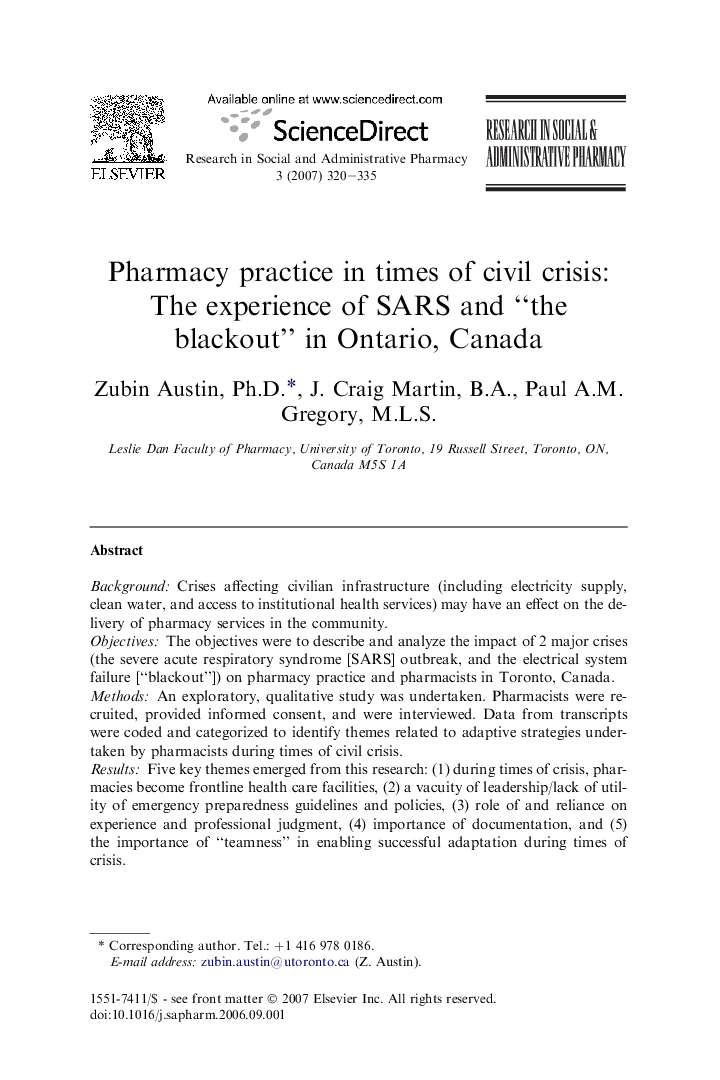| Article ID | Journal | Published Year | Pages | File Type |
|---|---|---|---|---|
| 2508971 | Research in Social and Administrative Pharmacy | 2007 | 16 Pages |
BackgroundCrises affecting civilian infrastructure (including electricity supply, clean water, and access to institutional health services) may have an effect on the delivery of pharmacy services in the community.ObjectivesThe objectives were to describe and analyze the impact of 2 major crises (the severe acute respiratory syndrome [SARS] outbreak, and the electrical system failure [“blackout”]) on pharmacy practice and pharmacists in Toronto, Canada.MethodsAn exploratory, qualitative study was undertaken. Pharmacists were recruited, provided informed consent, and were interviewed. Data from transcripts were coded and categorized to identify themes related to adaptive strategies undertaken by pharmacists during times of civil crisis.ResultsFive key themes emerged from this research: (1) during times of crisis, pharmacies become frontline health care facilities, (2) a vacuity of leadership/lack of utility of emergency preparedness guidelines and policies, (3) role of and reliance on experience and professional judgment, (4) importance of documentation, and (5) the importance of “teamness” in enabling successful adaptation during times of crisis.ConclusionsEmergencies and civil crises will continue to occur. Findings of this study include the importance of effective documentation systems and teamwork practices, as well as confident reliance on professional judgment and experience, as determinants of successful adaptation to civil crises.
